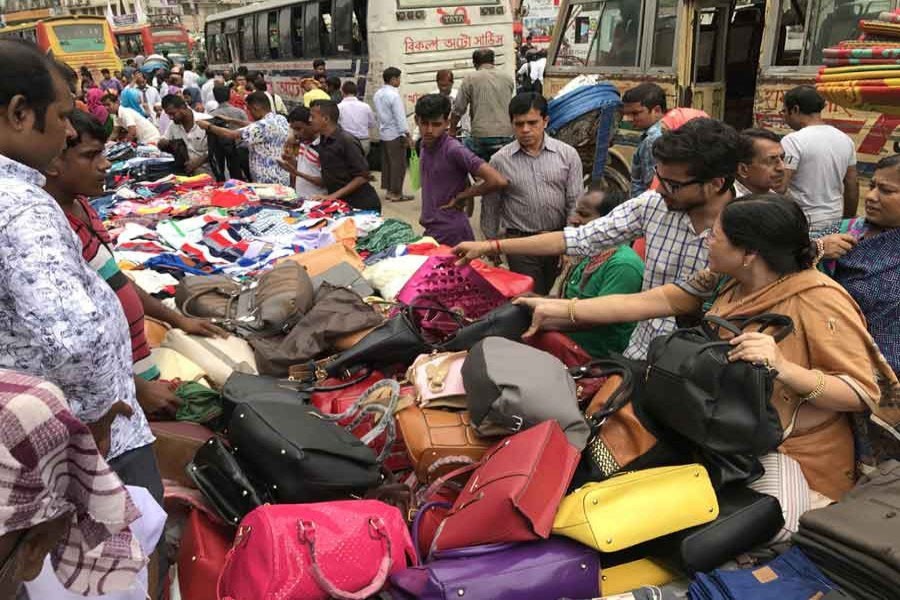Taxing the rich to 'serve' the poor is akin to the principle of Robin Hood in his war against the Sheriff of Nottingham from his base in Sherwood Forest. It's in practice by governments throughout the world, mostly alleviated through other tax breaks and sops. Such principles are in need of serious reform due to the creation and rise of a middle-class. They are the largest contributors to indirect taxation and will continue to be so. That will in turn further line the pockets of the really wealthy. For all the misery and economic downturn during the pandemic,the world's billionaires and those of Bangladesh billionaires have become richer. Ten thousand more persons have Tk 10 million in bank deposits. How much their wealth is can be imagined as only bank account figures have been released. A mere 9934 persons have legalised Tk 120 billion untaxed and undisclosed income and property on payment of a puny 10 per cent tax under the 'no questions asked' provision during the first three quarters of the outgoing fiscal year. One can safely be assumed that it hasn't probably covered the millionaires throughout the country.
The slap in the face of the abysmally low but conscious tax-payers has perhaps been lost on the policy-makers. That is on the other cheek after last year's budgetary decision to actually increase rates for them in comparison with that for the wealthier ones. Matters are unlikely to get any better given an even bigger budget estimated for the next fiscal, the source of funding of which is not yet known. The issues like the massive shortfall in revenue collection against targets, the further drain on the state's resources through stimulus packages, aid and cash injections for the worst-affected do not seem to have been taken into consideration. From all indicators, big-budget infrastructure projects won't be short of funds. Nor will the bridges and road transport sector.
Of the three major contributors to GDP, Agriculture comes third yet proposed allocation for subsidy, price support and inputs is slated at a meagre 9000 crore. That's way below the economists' view of Tk 200 billion. There are no visible plans for integrated agriculture from crop fields to the market. The last direct purchase of food grains fell well below targets. Pricing was the factor exacerbated by the archaic model of 'bring the rice to us'. This allows the middlemen to flourish. After repeated jolts to the supply chain during the pandemic, prices skyrocketed at the consumer points. There were no steps taken against undue hoarding by millers and wholesalers. Similar was the case with onion. Once duties were reduced, the prices magically went down and imported onion, garlic and ginger rotted in containers at the ports. Investments in shared harvesting machines didn't get priority and hapless farmers ruefully ruminate over increased cost of time-consuming labour to carry out the husking.
The invisible but matter of fact reduction in consumption wasn't factored in either. The end result was an alarming decline in government's food grain stocks. Very little has been said about the poultry and fisheries sector that cried out more for low interest loans and stimulus to overcome the shortfall in demand and the under-reported tragedy of culling. They too, will have to payback interest. No organisation, political or otherwise, have yet called for rescheduling of their loans albeit small. Instead, the focus of media is on big-businesses that seek rescheduling, duty exemptions and corporate tax reductions. Businesses that haven't kept reserves for a rainy day, have no idea of consumption patterns or retention of workforce shouldn't be given much consideration. More so because they provide no solutions to revenue generation in such times. They think of themselves and don't downscale their personal economic aggrandisement. Blaming the pandemic for not investing is a poor excuse. When bank interest rates were reduced, they didn't borrow. If Apex CEO Nasim Manzur speaks of wanting to hold his ears and walk out of business, he represents a group that pays taxes, repays loans but are hard hit with declining product demand, locally and abroad. Smaller businesses couldn't find their way around the mire of documentation. Banks are sitting on liquidity in the hope that government will borrow. Chances are slim. If previously a large interest bill worried the government, now they are facing a massive encashment of bonds by the same middle-class that are having to spend from savings. Lower deposit interests are reducing inflow of bank liquidity.
The middle-class needs support. Teachers, job holders, small businesses, house-rent dependent citizens and pensioners have to get some stimulus and tax relief to spur spending and live their lives. Remittances are not solely responsible for the record amounts being repatriated. There's a growing number of those that siphoned out money, remitting because investment scope is shrinking abroad. Many have returned home after losing their jobs. They are adding to the reported 25 million lower-middle class that have slipped back into poverty. That raises the poverty-line group to nearly 40 million. The $ 600 million World Bank loan to help this group can bring about massive change provided it is utilised properly and unnecessary nice-to-have expenses avoided. That and a close watch on corruption is the way forward. Throwing money at economic problems isn't sustainable. Clearlydefined return on investment including integrated supply chains that encourage consumption is an answer. Robbing the poor through extortion of taxation, bribery and all such stratagems to help the rich cannot be an objective of the state. Strict austerity, maybe a selected wage-freeze balanced by performance bonuses and quarterly review of unbridled expenses are some hard choices that have to be made. Ask the middle-class, day labourers and farmers. Their inputs will be priceless.


